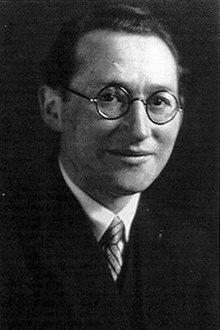Kurt Lewin
| Kurt Lewin | |
|---|---|
 |
|
| Born | Kurt Lewin September 9, 1890 Mogilno, County of Mogilno, Province of Poznań German Empire |
| Died | February 12, 1947 (aged 56) Newtonville, Massachusetts |
| Citizenship | Germany, United States |
| Nationality | German |
| Fields | Psychology |
| Institutions |
Institute for Social Research Center for Group Dynamics (MIT) National Training Laboratories Cornell University Duke University |
| Alma mater | University of Berlin |
| Doctoral advisor | Carl Stumpf |
| Doctoral students | Leon Festinger, Roger Barker, Bluma Zeigarnik John Thibaut |
| Other notable students | Rudolf Arnheim, Morton Deutsch |
| Known for | Group Dynamics, Action research, T-groups |
| Influences | Gestalt psychology, Kurt Koffka, Jacob L. Moreno |
| Influenced | Fritz Perls, Abraham Maslow, David A. Kolb, Eric Trist, Brian J. Mistler |
Kurt Lewin (September 9, 1890 – February 12, 1947) was a German-American psychologist, known as one of the modern pioneers of social, organizational, and applied psychology in the United States. Kurt Lewin, exiled from the land of his birth, made a new life for himself. In this new life, Lewin defined himself and his contributions within three lenses of analysis; applied research, action research, and group communication were his major offerings to the field of communication.
Lewin (/ləˈviːn/ lə-VEEN) is often recognized as the "founder of social psychology" and was one of the first to study group dynamics and organizational development. A Review of General Psychology survey, published in 2002, ranked Lewin as the 18th most cited psychologist of the 20th century.
In 1890, he was born into a Jewish family in Mogilno, County of Mogilno, Province of Poznań, Prussia (modern Poland). It was a small village of about 5,000 people, about 150 of which were Jewish. Lewin received an orthodox Jewish education at home. He was one of four children born into a middle-class family. His father owned a small general store, and the family lived in an apartment above the store. His father, Leopold, owned a farm jointly with his brother Max; however, the farm was legally owned by a Christian because Jews were unable to own farms at the time.
...
Wikipedia
